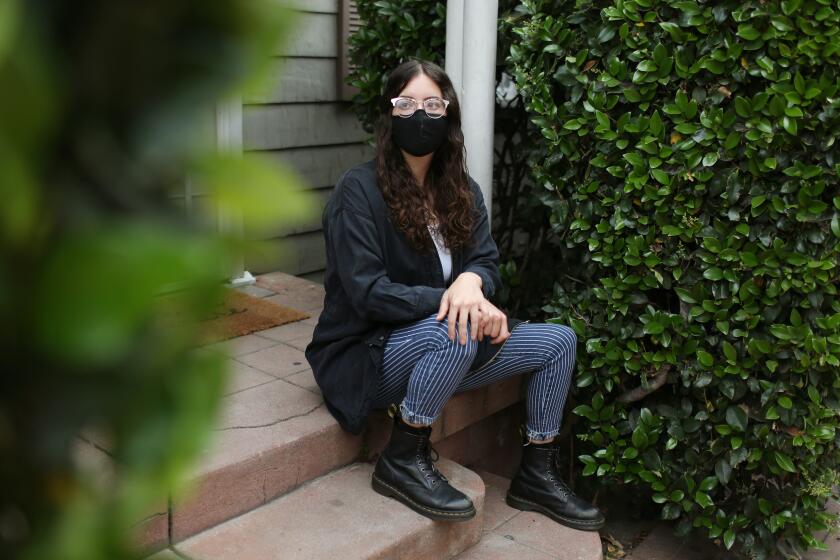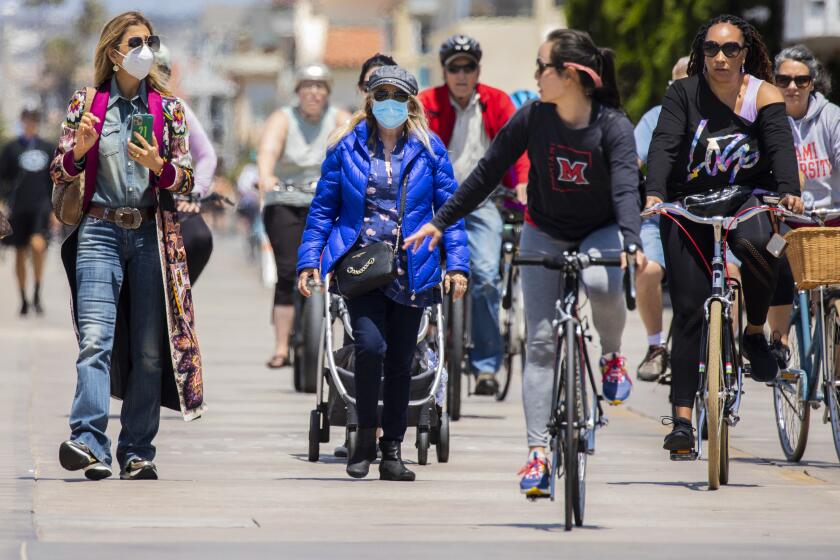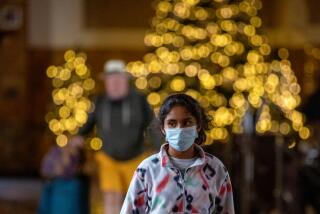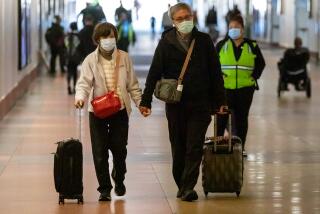Being vaccinated doesn’t mean you must go without a mask. Here’s why
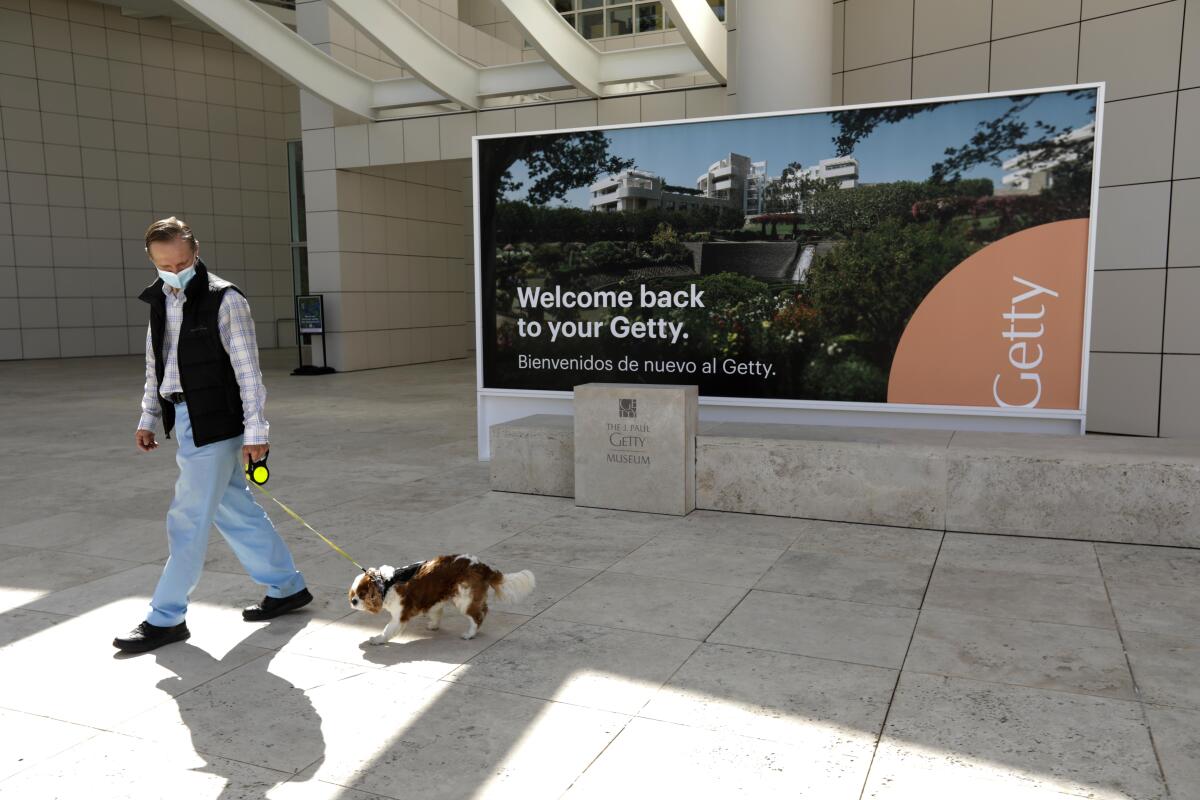
For more than a year, public health officials have repeatedly told us that masks save lives. They’ve warned us to keep our distance from our neighbors, who’ve morphed into disease vectors before our eyes.
Now they are telling us that if we’re vaccinated, we no longer need to wear masks or physically distance ourselves in most cases — even indoors. To many people, this seems hard to reconcile with so many long months of masking and physical distancing and sacrificing our social lives for fear of coming down with COVID-19.
What is an anxious, pandemic-weary (and wary) soul to do?
First, it’s important to stress that the dramatic rollback of mask-wearing and physical distancing recommended last month by the Centers for Disease Control and Prevention — a policy California has adopted as part of a broader reopening — applies only to people who have been fully vaccinated.
Even if you are vaccinated, though, you don’t need to change your behavior one iota if doing so makes you uncomfortable.
“Nothing in the CDC guidelines says to stop wearing a mask,” said Dr. José Mayorga, executive director of the UCI Health Family Health Centers. “It’s a recommendation, but if you choose to wear one, that’s OK. You shouldn’t be stigmatized.”
Mayorga has lost five relatives to COVID-19, including a favorite aunt, and he knows from personal experience how hard it can be to rush back into so-called normalcy.
“Many people have not been directly impacted by COVID,” he said. “But for those of us who have been, it’s natural to have concern or fear, thinking, ‘Oh, I can take my mask off? But is it really safe?’”
Some people are just cautious by nature and won’t be rushing to jettison their masks and rub elbows with unmasked strangers.
“I know that, realistically, I can do pretty much anything once I’m fully vaccinated, but mentally it’s scary,” said 36-year-old Sacramento resident Shannon Albers, who got her second dose of the Pfizer vaccine on May 27. “It’s going to be weird, after a year of them drilling into us ‘Wear a mask, wear a mask, wear a mask,’ to be around a bunch of people who aren’t wearing masks.”
We seem to be on the cusp of returning to normal life, but for many people, transitioning back to Before Times is proving to be a lot more fraught than we expected.
Early in the pandemic, the CDC said masks were not necessary. Then, it changed its guidance so emphatically that masks became an indispensable part of our wardrobes. Now the advice has changed again.
“For scientists, it is very understandable that there is this revision of recommendations based on new research,” said Roxane Cohen Silver, a professor of psychology, public health and medicine at UC Irvine. “But for the general public, that could sound very confusing.”
We don’t know how long the vaccines’ protection lasts, but it is increasingly clear that being vaccinated reduces the risk of infecting others.
“Vaccinated people have very little risk of infection; they can do what they want to do,” said Dr. George Rutherford, a professor of epidemiology at UC San Francisco. “I think we’re in pretty good shape, and I think it’s going to be pretty much a disease-free summer.”
Around 46% of Golden State residents have been fully vaccinated, lagging behind numerous other states but ahead of the national rate of just under 43%. Some millions more have built up immunity after a coronavirus infection.
As more people get protection, the virus finds fewer susceptible bodies, further reducing transmission and producing a downward spiral in the number of cases.
In California, the rate of positive coronavirus tests has dropped from a seven-day average of over 17% in early January, at the peak of the winter surge, to under 1% now. The number of hospitalized COVID-19 patients statewide has fallen from over 22,000 to below 1,300 in the same period.
If you are indoors with other people you know to be vaccinated, you can dispense with masks. Want to cook dinner for a group of vaccinated friends you haven’t seen for several months? Carpe diem — and don’t worry about wearing masks or sitting spaced apart.
But if you are in a mixed crowd — say, a grocery store — and don’t know who’s vaccinated, wear a mask, even though your personal risk is low. If the workers are wearing masks, it’s a matter of respect to wear one yourself. Some people may be nervous about being there — those who are immune-compromised, for example, or can’t get vaccinated for some other health reason — and they won’t know if you’ve had your shots.
California is set for a full reopening on June 15, but experts say a full recovery is dependent on trust.
“Forget about the medical benefit,” said Bradley Pollock, associate dean for Public Health Sciences at the UC Davis School of Medicine. “If you are wearing a mask, people who are not vaccinated don’t need to feel uncomfortable around you. So, it’s kind of a courtesy issue.”
The presence of children is another good reason to mask up. Most kids ages 12 to 16 haven’t been vaccinated yet, and those under 12 can’t be, yet. They’ll probably have to wear masks in school this fall.
And though children have not been hit by COVID-19 nearly as hard as adults, and are not efficient transmitters of the virus, thousands of kids have been hospitalized with it nonetheless — including about 4,000 nationwide diagnosed with a frightening multisystem inflammatory syndrome.
Mayorga, who is fully vaccinated and has young children, said he wears a mask “to protect them and to model good behavior.”
This report was produced by KHN (Kaiser Health News), one of the three major operating programs at KFF (Kaiser Family Foundation).
